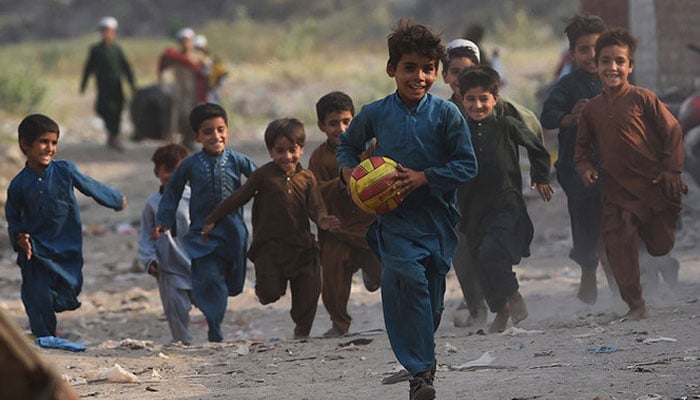Where children count for less
On average, around 7000 infants and children die in Pakistan each day
Out of every 1000 children born in Pakistan, an estimated 63 will not reach their fifth birthday. On average, around 7000 infants and children die in Pakistan each day, with an estimated 150 losing their lives to congenital anomalies, more commonly known as birth defects. These are the fifth leading cause of death in Pakistan. New-born children appear to be at a particularly high risk with some health experts estimating that 2.5 million new-borns lose their lives every year in the country. They also say that a large chunk of these deaths can be avoided. If these children were born in a country with an adequate number of paediatric surgeons, many would indeed live to have children of their own someday. Pakistan needs at least 1250 such surgeons but is currently making do with approximately 170 at most. Astonishingly, despite the clear need to boost the number of paediatric surgeons, there is actually a shortage of opportunities and jobs in the public sector, where they are most needed, and only a few institutions offer programmes for paediatric surgery. As a result, not only is the country producing too few paediatric surgeons but among those it does, dozens end up going abroad in search of opportunities to ply their trade. Hence, the severe shortage.
Those paediatric surgeons who do remain predictably end up with overly high caseloads and are further encumbered by a shortage of key resources including essential surgical equipment, facilities, and support staff. Why would a country invest so little in training, retaining and facilitating a human resource that it so desperately needs? This is likely, in large part, down to the fact that the lives of the underprivileged count for little in Pakistan. Many of the country’s enduring problems boil down to this simple maxim. The privileged are far less likely to ever require a paediatric surgeon, one of the blessings of being born in an environment with adequate food, shelter, and other basic facilities, and those that do may well find that those that are available are within their means. However, for the majority of children who need elective surgeries, five-to-six month waiting periods are the norm. This often ends up being too late for many.
However, there is more to this tragic scenario than simple under-spending on health, which needs to be at around 6.0 per cent of GDP but stands at around 1.4 per cent. This results in shortages and other inadequacies in almost every aspect of health from staff, doctors and surgeons to equipment, clinics, medical education and hospitals. However, the young appear to be particularly underserved. Around a third of the country comprises children less than 15 years of age and yet we have only about 0.2 paediatric surgeons per every 100,000 people. There is likely no age group that can count on the state for less. From medical professionals and hospitals to schools and textbooks, if you are young, Pakistani and without rich parents you need to find a way to get or get into these things with little to no help from the ones responsible for securing your fundamental rights. And if you cannot, well then good luck. You are going to need it.
-
 Why Travis Kelce Says Taylor Swift Has Made Him 'so Much Better'?
Why Travis Kelce Says Taylor Swift Has Made Him 'so Much Better'? -
 Halle Berry Credits This Hairstyle With Launching Her Acting Career
Halle Berry Credits This Hairstyle With Launching Her Acting Career -
 Hailee Steinfeld Spills Her 'no-phone' Rule With Husband Josh Allen
Hailee Steinfeld Spills Her 'no-phone' Rule With Husband Josh Allen -
 Bowen Yang Gets Honest About Post SNL Life: 'It’s An Adjustment'
Bowen Yang Gets Honest About Post SNL Life: 'It’s An Adjustment' -
 Charlize Theron Delivers Strong Message At 2026 Winter Olympics Opening Ceremony
Charlize Theron Delivers Strong Message At 2026 Winter Olympics Opening Ceremony -
 Lil Jon Reacts To Son Nathan Smith's Death: 'Devastated'
Lil Jon Reacts To Son Nathan Smith's Death: 'Devastated' -
 Bianca Censori Reveals Where She And Kanye West Stand On Having Children Together
Bianca Censori Reveals Where She And Kanye West Stand On Having Children Together -
 Taylor Swift Hypes Olympic Athletes In Surprise Video Message
Taylor Swift Hypes Olympic Athletes In Surprise Video Message -
 Timothy Busfield Charged With Four Counts Of Child Sexual Abuse
Timothy Busfield Charged With Four Counts Of Child Sexual Abuse -
 Amy Schumer Explains Why Her Sudden Photo Surge Is ‘not A Cry For Help’
Amy Schumer Explains Why Her Sudden Photo Surge Is ‘not A Cry For Help’ -
 Kanye West First Contacted Bianca Censori While In Marriage To Kim Kardashian?
Kanye West First Contacted Bianca Censori While In Marriage To Kim Kardashian? -
 Travis Kelce Reveals What His Nieces Really Do When He, Taylor Swift Visit
Travis Kelce Reveals What His Nieces Really Do When He, Taylor Swift Visit -
 Lola Young Makes Career Announcement After Stepping Back From Touring
Lola Young Makes Career Announcement After Stepping Back From Touring -
 Priyanka Chopra Shares Heartfelt Message For Nick Jonas
Priyanka Chopra Shares Heartfelt Message For Nick Jonas -
 Spotify, Major Labels File $13b Lawsuit Over Alleged Music Scraping
Spotify, Major Labels File $13b Lawsuit Over Alleged Music Scraping -
 Travis Kelce Opens Up About Being Backup Plan For His Nieces
Travis Kelce Opens Up About Being Backup Plan For His Nieces




